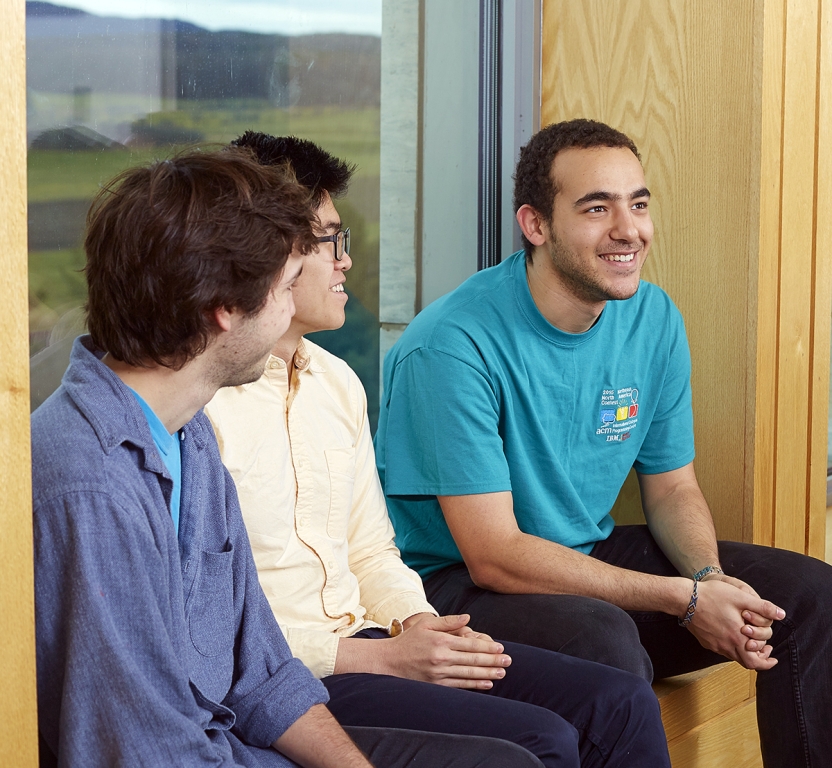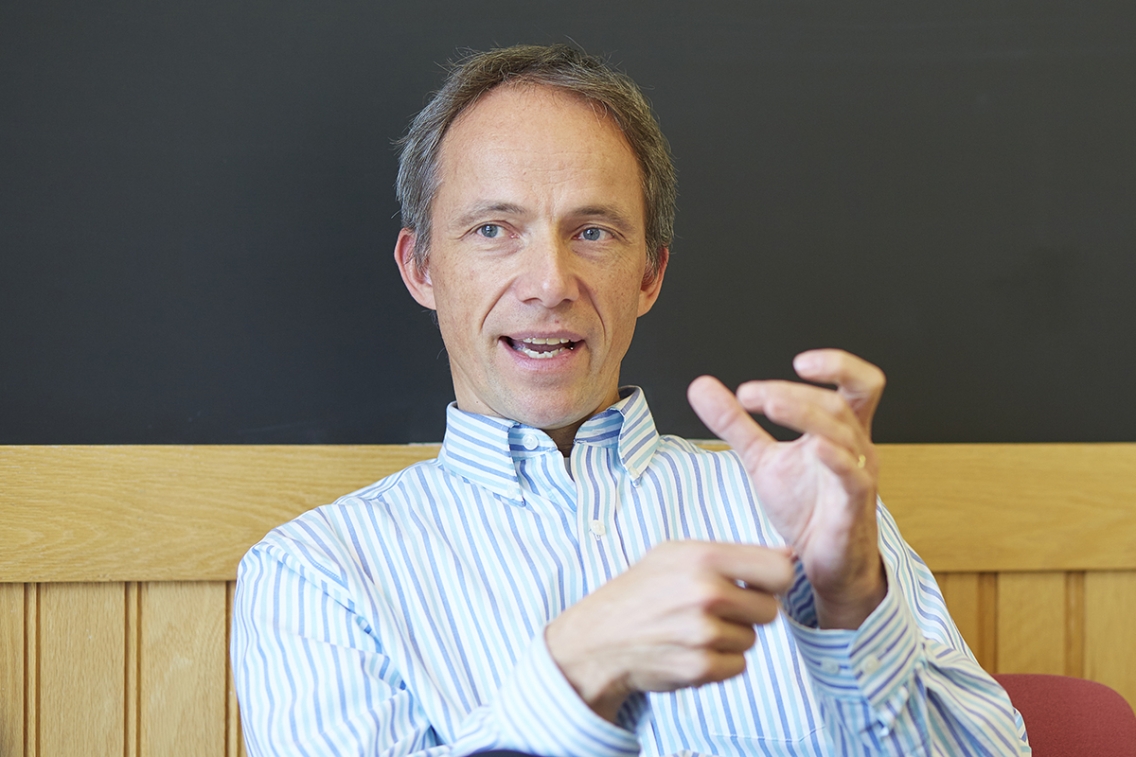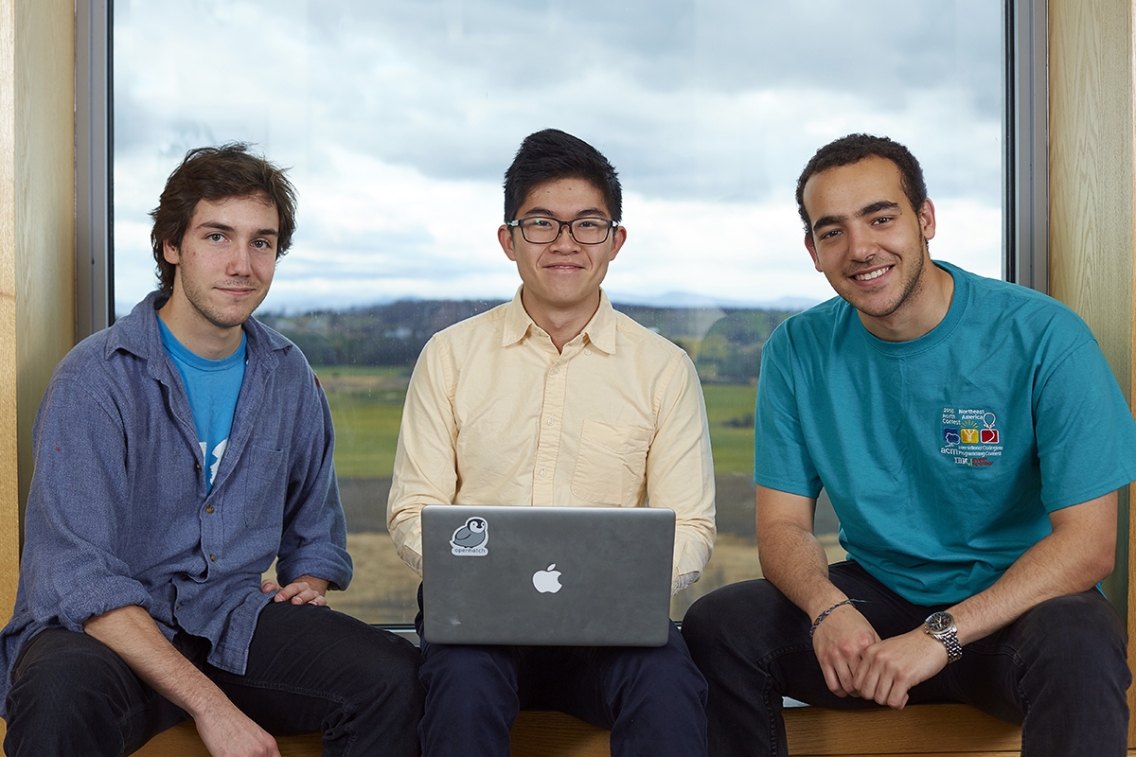The New Faces of Computer Science

MIDDLEBURY, Vt. – For some people, the idea of spending hours in a room packed with students racing the clock to solve mind-boggling problems conjures anxious memories of standardized testing. Sherif Nada ’16 sees it differently. Nada and two Middlebury teammates recently competed in the International Collegiate Programming Contest (ICPC), where they fed off the stressful energy of competition.
“It’s just really fun,” said Nada. “It’s a constant flurry of problems you’ve never seen before. There’s always a bad way of doing it and a great way of doing it that’s really clever. That satisfaction of being like, ‘Wow, I actually came up with this!’ is a great feeling.”
Middlebury teams finished first, second, and sixth out of eight teams in the preliminary round at Clarkson University. The first-place team, which included Nada, Davin Chia ’17, and Tom Dobrow ’16, went on to the next round at the Rochester Institute of Technology, where they didn’t fare as well, finishing last among thirteen teams that included Harvard, MIT, and several other major research universities. Despite the loss, the team was enthusiastic about the experience and is already looking to see how Middlebury can be more competitive in the future.

The fact that Middlebury sent three teams to ICPC this year is a sign of changing times in the Computer Science Department, which has grown rapidly in recent years according to Daniel Scharstein, professor of computer science and department chair.
Middlebury faculty have also seen more students participating in hackathons, which are timed computer competitions with an emphasis on creative problem solving rather than programming. Scharstein says these competitions appeal to a different type of programmer who enjoys the idea of using their creativity to build something. Both types of contests give students a taste of the mental agility and teamwork they’ll need in the professional world.
It’s all part of the new face of computer science, says Scharstein. There are now four times as many students taking computer science courses as there were just five years ago. Back then the department taught about 200 students per year. Now it teaches 800, he said, and with more than 100 declared majors the department is tied for the fifth most popular major.
The last time the department saw significant growth was during the dot-com boom of the late 1990s when students saw big dollars showered on successful start-ups. When the tech bubble burst in 1999, enrollment in computer science at Middlebury, and across the country, fell by half. Some are asking whether we’re in the midst of another bubble, but Scharstein says some important things have changed since the last boom-and-bust cycle that make recent growth seem more sustainable.

“If you look at the academic job market, CS departments everywhere are hiring faculty because they all are overrun with students,” said Scharstein. “So partly the word has gotten out that in the STEM fields there are a lot of jobs, and that helps. But also, thanks to social media and app culture it’s no longer just the nerdy appeal of computer science. Now it’s in the mainstream culture.”
Recently Middlebury sent a nine-person team to a hackathon at Mount Holyoke College. Seven of the team’s members were women, a new phenomenon in a historically male-dominated industry.
“All of a sudden there’s this buzz in our department and it’s not just a few loners who like to go to programming contests,” said Scharstein, “but students are going to contests, going to hackathons, and a student club is soliciting projects from the community. We’ve never seen the diversity of students and activities that we have now.”
Of course, it doesn’t hurt that students are finding good jobs. Nada and Dobrow, who are only partway through their senior years, already have software development jobs lined up for after graduation–Nada at Amazon and Dobrow at Google. Chia, a junior, expects to follow suit before pursuing graduate study.
For now, though, Chia says the work is its own reward, and he loves the high-pressure thrill of competition. “It’s the rush of solving a problem under constraints and not only solving it, but solving it in the best possible way,” he said. “Just sitting there and thinking about it – thinking about all the different ways to do it, then actually doing it and getting it accepted is just so much intellectual satisfaction!”
With reporting by Stephen Diehl, photos by Yeager Anderson ’13.5

